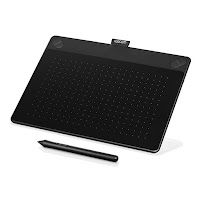

- Intuos2 wacom tablet driver for mac drivers#
- Intuos2 wacom tablet driver for mac code#
- Intuos2 wacom tablet driver for mac windows#
I want pure facts (or at least as close as we can get). Ok, I’m not trying to start a flame war here, although it seem like one has already been started.
Intuos2 wacom tablet driver for mac windows#
She just wanted away from Windows so I helped her in that department She doesn’t care about OS politics and she ain’t an OS guru either. She would’ve been using FreeBSD instead of Linux, but FreeBSD doesn’t support her Terratec 128PCI soundcard and an USB Wacom Intuos 2 tablet. Personally, I use FreeBSD 5.0 as my home desktop system, while my girlfriend is using RedHat 8.0.
Intuos2 wacom tablet driver for mac code#
This is because according to the BSD philosophy, code is tested over and over and over before code from -CURRENT makes it into a -RELEASE.
Intuos2 wacom tablet driver for mac drivers#
If FreeBSD sticks to it’s true BSD philosophy, I doubt we’d see an enormous jump in the amount of written drivers even if the amount of developers doubled. It’s also true FreeBSD doesn’t support as much new hardware as Linux does, but with the right hardware, it works like a champ. It’s similar to the Debian installer in a way, it’s a straight, no eye-candy, no bullshit installer which assumes you either know exactly what you are doing or you read the “Installation” part of the FreeBSD Handbook as you are installing the OS. The main desktop-related problem that seems to be plaguing FreeBSD is it’s installer, which is loathed by many and loved by just as much. Hell, a lot of people think even RedHat 9 and Mandrake 9.1 don’t cut it for the desktop yet. The better question is, are YOU ready for FreeBSD ? While some people (like me) might consider FreeBSD to be ready for the desktop, many others are likely to disagree with me. Is FreeBSD even being developed with that goal in mind, or are the developers sticking to a behind-the-scenes stable server model? But seriously… is it? I hear a lot of lauding for FreeBSD’s stability with network services and such, but depressingly little about it’s suitability for day-to-day productive use in the office and at home. That’s like asking why doesn’t everybody in the world move to Switzerland because it’s the nation with the highest GNP. Or better yet, why don’t they all give up and work on linux.īecause despite what you may think, there’s a large FreeBSD community out there who depends on these developers. I’d love to try out Linux 2.6 and benchmark it against FreeBSD 5.0, but the last time I built a Linux 2.6 kernel it paniced when I tried to boot. linux 2.6 isn’t aimed JUST at making smp better, but it’s going to blow freebsd out of the water?Īll I can say is “We’ll see”. This is quite a feat, considering the previously mentioned kqueue mechanism is thread safe and handles requests from multiple threads in an intelligent manner.Īnd i also read that the entire point of freebsd 5.0 was to fix smp. KSEs remedy the issues of multiprocessor scalability and allowing multiple concurrent system calls between threads.

This could be seen in such things as Opera for FreeBSD, where transfers of large files seemed to hang the entire browser. Furthermore, whenever any thread entered a system call it blocked all threads.

It had the grave disadvantage of threads being unable to scale across multiple processors, however. This allowed for threading functions to be implemented without requiring system calls. Threads took up process table entries, and every threading function required its own system call.įreeBSD, on the other hand, used a userspace implementation. Its previous implementation used a hack which created a pseudo-LWP through the clone() system call. Regardless of the kernel implementation, KSEs should prove a superior solution to Linux’s approach because more of the threading functionality won’t require expensive system calls/context switches.įurthermore, Linux is just now getting support for next generation threading. We won’t really know which one is better as far as how they’re implemented by Linux/FreeBSD until the FreeBSD developers add KSE support to FreeBSD’s threading library. There’s been a great deal of discussion regarding a 1:1 vs M:N threading implementation. They weren’t “bugs”, it was simply a markedly inferior implementation.Īnd that linux 2.6 will blow freebsd 5.0 out of the water. Linux is attempting something similar with epoll(), however this provides no means of waiting for either socket or filesystem events (Linux provides filesystem monitoring through DNotify)įrom what I have read freebsd 5.0 did NOT fix smp bugs from freebsd 4.x The kqueue mechanism for one, O(1) synchronous, stateful multiplexing of a variety of events. What does freebsd offer that linux doesn’t?


 0 kommentar(er)
0 kommentar(er)
